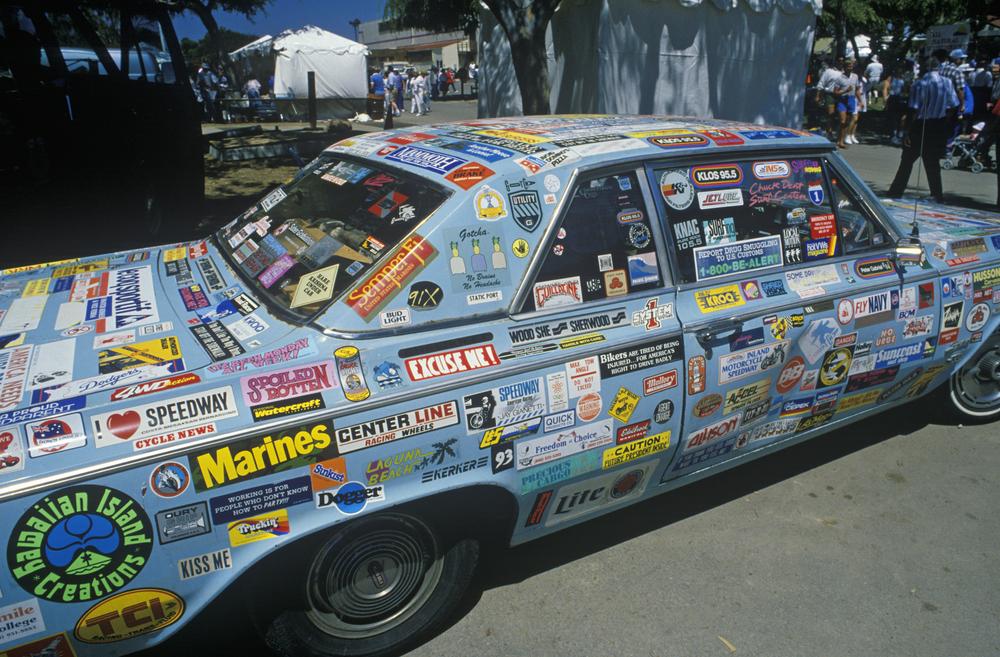
No, this is not about bumper stickers you see on cars signaling anything from political philosophy to how smart one’s kid is.
But, like so many bumper stickers, it is about raising awareness. In this case, it’s about a useful coaching technique that helps individuals gain self-awareness through an exercise in which they develop visual cues to serve as reminders to modify behaviors that impede their ability to perform and/or lead in the workplace. Their cues can help them improve how they are perceived and achieve better results. I know this technique is effective because it worked for me.
In 2003, I had the honor of working with a great coach. He guided me through a process wherein I created my own bumper sticker to help me work on my goal to be more consultative in my role as a Human Resources leader. At times, I could be too driven and would not engage some co-workers or clients as collaboratively as I could have. This behavior did not help my career. My coach and I brainstormed several bumper sticker slogans or simple words to use. We settled on:

I was the type of person who would rather ask for forgiveness than permission back then, so the “ask permission” slogan stuck. I placed my bumper sticker above the threshold of my office door where I could see it every time I left the room. It became my visual cue – a reminder to engage with my clients or co-workers differently, in a more collaborative way. It took active effort on my part and some time for me to internalize, but I was amazed at how such subtle changes could lead to such dramatically different results.
When operating in my “ask for forgiveness” mode, I typically would pull together an analysis, take it to clients and provide my insight and recommendations. Although many times this proved beneficial, other times it had the opposite effect: some people felt that I had locked into my point of view without considering their input. I was perceived as overbearing.
In my “ask permission” mode, I would call clients and ask if it would be helpful if I pulled together an analysis and set up a meeting to discuss the data. When meetings took place after this initial approval, I would present my clients the analysis, along with alternatives, and ask for their input or thoughts. At times, this approach would lead to some additional work or analysis requests from clients. Other times, my clients were satisfied that they had the data and options necessary to proceed. Asking permission enhanced dialogue and better equipped my clients to make informed decisions.
As a result, feedback from my clients improved; they appreciated the opportunity to openly discuss alternative strategies and share their perspectives. By asking permission, I assured my clients that I valued their opinions, reminded them that I was working at their request and affirmed that they were in control of the final decision and outcome. I became viewed as more open-minded and collaborative.
Having success with asking permission and being viewed as more collaborative with others led to career growth. Of course, there were many more topics and skills that my coach and I worked on over a six-month engagement, but the bumper sticker exercise proved to be highly effective with me.
In my experience as a coach, I have used the bumper sticker exercise with several clients. I’ve found that the visual cues they construct are uniquely suited to themselves and their goals. They may use a bumper sticker, as I did, or they may choose another source as their reminder – a screensaver on a PC or phone, a Post-It note on the side of their desk, anything easily seen in a space they occupy. While their goals and their “bumper stickers” vary, the process raises their self-awareness and makes them more mindful of how they are received in their interactions with others.
How will your bumper sticker help you achieve what’s next?
##
Lance Hazzard, CPCC, ACC, is an executive coach helping people and organizations achieve what’s next. He is Executive Coach and President at Oppnå® Executive & Achievement Coaching. Find out more about Lance and Oppnå® Coaching at oppnacoaching.com